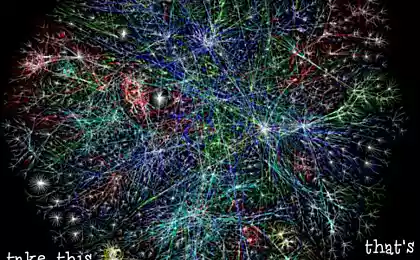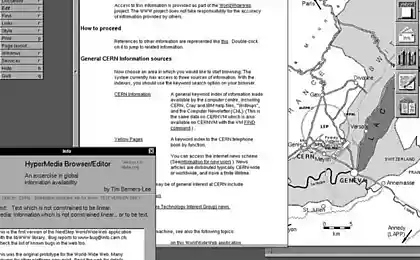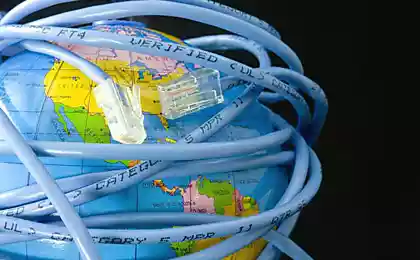515
The father of the world wide web — the Network should be the inalienable right of every person

Tim Berners-Lee, considered the father of the world wide web, speaking at the Le Web conference in Paris, expressed the view that the Internet should finally start to be regarded as one of the key and the inalienable rights of every human being. Berners-Lee believes that every person on the planet should have the opportunity unhindered by the state and more affordable connection to the Network.
In fairness it should be noted that along with the British computer scientist Berners-Lee father of the Internet can also be considered and his Belgian colleague Robert Cayo, with whom they are working at the time at CERN and at her own request, undertook the project of the world wide web as a more effective system for communications.
December 20, 1990 two scientists completed the first test of the world wide web, but Berners-Lee has shared details of this new and amazing project of only 7 Aug 1991, in the framework of the call, which bore the name at.hypertext.
As the portal Mashable, after Berners-Lee made a statement in which he insists that Internet access should be considered as one of the basic human rights, in which anyone will be able to access the Network at a more affordable price or even for free, many state institutions of surveillance and censorship, most likely, will Express their concern, to say the least.
"I think it's time to recognize the Internet and access to it as inalienable rights and freedoms of the individual. It would mean a guaranteed right to accessible way to connect to the Network for all of us without any commercial or political discrimination, and with the obligatory respect for the protection of private information and freedom of Internet users according to the rules of the countries in which they live," said Berners-Lee.
He also presented the report of the so-called rating of Internet development (Web Index) in the world, according to which 50 percent of Internet users live in countries whose government has introduced or is introducing a program that limits the activity of people in the Network. If you believe the details of the report, approximately 4.4 billion people worldwide still do not have access to the Internet. However, as the report shows, most of them are poor people living in poor countries or rural areas.
At the same time, the report makes clear that the amount of Internet usage though and slowly, but constantly growing. In countries with high income growth the utilization of the Network since 2005 has increased from 45 to 78 percent. In developing countries this figure increases annually by 10 percent.
As for the poorest countries in the world, the rating of Internet development indicates that the cost of Network access in these countries is 80 percent higher, and the volume of use is 10 times lower than in countries with high incomes.
"In General, the number of people having Internet access in the countries-participants of the rating of a Web Index, increased by only 5 percent over the last year. Most often this growth is evident in the countries with upper middle income. There's a volume of Internet use since 2011 to 2013 increased from 39 to 45 percent."
Source: hi-news.ru
Physicists are trying to explain the strange particle collisions at the LHC
Wireless sensor will warn you that your food has started to spoil





















